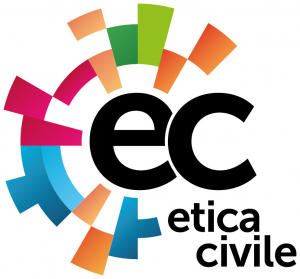International Camp 2016, Final Document
Walking the Earth, Taking Care of the Common Home
Earth is our common home. During the International Camp we, young people from all over the world, have experienced what walking on the same earth means. We come from Angola, Bolivia, Democratic Republic of Congo, Israel, Italy, Morocco, Palestine, Republic of the Congo, Russia, Ukraine and after having passed ten days in “La Vela village” we realized that if we want to go fast we should go alone, but if we want to go far we should go together.
Living the International Camp and sharing our thoughts we became aware of the fact that all the human dimensions, personal, political and spiritual ones are tightly linked to one another. Hence, the only relevant approach to tackle environmental issues is integral and systematic thinking. The only possibility to leave this world a better place than it was when we entered consists in being creative and finding suitable solutions on the basis of mutual learning and education. On this path the very first step consists in the acknowledgment of the beauty of nature around us, since in line with Pino Arpioni’s educational methodology, the beauty of nature unleashes the beauty and harmony of men and women. In fact, living surrounded by this beauty makes us wonder about our role and position in the large book of history and thus provides the basis for intergenerational responsibility. As a matter of fact, very often we remain ignorant of the direct consequences of our actions on the environment, but we well understand the ethical and moral need to take care of it. Therefore, it is crucial to adopt a far-seeing approach in educating ourselves and the future generations of necessary steps we need to enhance our overall awareness and sensitivity. It also implies that we are part of something bigger and more important than us, and we cannot simply dominate it and take it for granted. On the contrary, we should strive for a balanced relationship between ourselves and the environment. This requires both personal and collective responsibility along with taking care of what we have been gifted with.
Nowadays, given the complicated economic, social, cultural and geopolitical juncture, the need to find or restore such a balance appears to be far stronger than before. A concrete example is the vanity of so-called consumption models of development and the “throw-away society”: consuming much more than we need and not paying attention to social impact of our consumption patterns and other consequences.
In order to avoid the risk of becoming such a society on a global scale, which despite the formal progress would indeed mean a race to the bottom, we shall focus on our collective responsibility. As Giorgio La Pira said, everyone of us has a “social vocation”, which we have to fulfil collectively. Thus, there is no distinction between personal, local and global commitment, but they actually complement each other. Therefore, facing climate changes, the mankind needs a comprehensive and consistent approach: international agreements tend not to work without local systems for recycling and vice versa. Moreover, the gap between these two levels can be filled with strong and proper institutions involving all the relevant actors and key stakeholders. All of them shall be flexible, innovative and apply an out-of-the-box way of thinking. The set of available tools is particularly extensive: they range from communicating the scientific underpinning to general public to “green” marketing, sustainable consumption, limiting the use of plastic, investment in research and development along with transnational cooperation. The use of these instruments and the implementation of respective policies represent the cornerstones for proposing a new workable economic approach, where welfare will not be measured by market prices but by a real ecological value of goods and services.
As representatives of the three Abrahamic religions we refer to our common spiritual father who was chosen by God for the Alliance. Abraham was able to face the truth without being slave of any idols. We, following his example, when dealing with environmental issues, shall not be led astray by petty interests and egoistical attitude. We can be guided in this endeavour by our respective religions. Although, it has not been long since the religions made their stance in the contemporary ecological debate, we should not forget that taking care of the creation can be traced back to the roots of all the three religions. In fact, we can see that all the Abrahamic religions have always stressed the attention on the role of man as a guardian of nature. This common moral basis can allow us to deepen the cooperation between the three religions. We, the young generation, supported by our faith, spiritual strength and inspired by our experience at the “La Vela Village”, commit ourselves to follow this path, destroy the modern idols, and make our world a place of dialogue, tolerance, peace and freedom.




